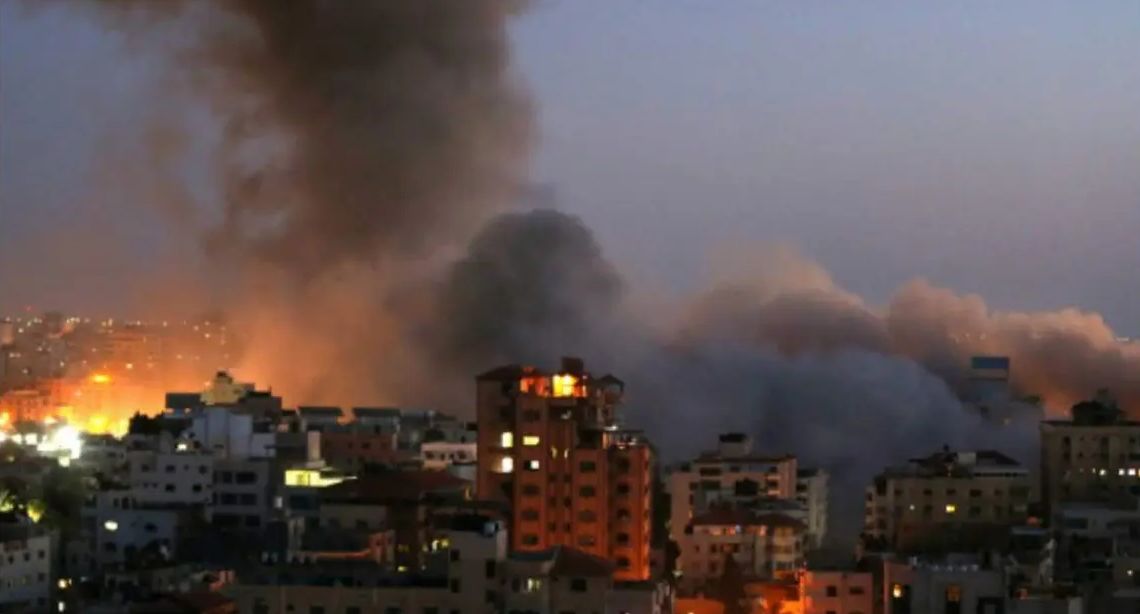Violence is often a form of communication born of desperation.
When we don’t or won’t or can’t listen to each other and respond to what we have heard at a human level, there are consequences.
The wisest commentary I ever heard on the Middle East was from a young Palestinian who observed that in her home country there are two peoples crying out in deep pain, desperate for their pain to be heard and acknowledged by the other – and yet each unable to hear and acknowledge the other’s pain. The rocks and rockets, bullets and bombs have their roots in a desperate cry to be heard and seen and acknowledged as fellow suffering humans.
And it’s not just in the Middle East. I see it everywhere – and frequently in couples who are going through difficulties and triggering each other.
What makes it doubly difficult to break out of this cycle is trauma.
Unhealed trauma often leads to a kind of myopic tunnel vision fueled by fear and focussed on ME getting MY NEEDS met. In this space, anyone who gets in MY WAY is an enemy to be feared, avoided, fought against. It is very hard to see the humanity and the legitimate needs of the other when we are in this trauma space.
And the tragedy is that when people are acting from this trauma space, they often pass on trauma, and so the cycle continues and the pain and separation and “othering” grows.
Like a black hole, a conflict has a gravitational pull
As outsiders looking on, it is easy to get drawn into taking sides in the conflict. Like a black hole, a conflict has a gravitational pull. The people inside the conflict are desperate for allies. “Look at my pain! Look at what the other side is doing to me/us! Be my ally and treat my enemy as your enemy!”
But picking one side over another would be a mistake, and doesn’t help defuse or heal the conflict. What is needed is to listen to BOTH sides with compassion and humanity and gradually to help heal the underlying traumas.
This doesn’t mean that we are blind to power imbalances or that we equate the suffering of one side with the suffering of the other. The moment we do that we cease to listen. The language of pain and suffering cannot be quantified. Each individual’s pain is a universe unto itself and deserves our complete and un-analytical attention.
What that means is that we don’t say things like: “Yes, but” or “But if you had done this, they wouldn’t have done that”. To truly listen we have to suspend our ego – that part of us that is always trying to compute and calculate what is going on. To truly listen means parking (for a while) our own perspectives and opening up to what it really is like to be in the other person’s shoes.
Something miraculous happens when people really, deeply, fully listen
Something miraculous happens when people really, deeply, fully listen: The person who feels heard starts to come out of their tunnel vision. They feel they are not alone! And because they are not alone, because there is at least ONE PERSON who truly understands, suddenly the universe is not quite such a scary place. Suddenly, they feel “getting what I NEED” is not quite so urgent, and a little space starts to open to see the needs of others.
To my friends in Israel and Palestine, my heart goes out to you. I see and hear how much you are hurting, how devastating this conflict is for you, how you fear for your lives and how you mourn your friends and compatriots, women and children who are killed, maimed, homes lives and livelihoods destroyed. None of you deserve this. You all deserve to live in peace and with security.
I know that in this moment, being heard isn’t enough – that you need the violence to stop, that you need those who are profiteering from violence (including politicians, people in the media and purveyors of weapons) to be stopped and held accountable. I know that you need people in the international community to call out the injustices and inhumanity that is happening, and I will do what I can to help.
And to my friends closer to home who are in conflict and feeling un-heard, I also say: “I see and hear your pain. You deserve to be understood and I know how painful it is to be misunderstood or ignored and your needs discounted.”
And I’m here for you if you want to talk.





